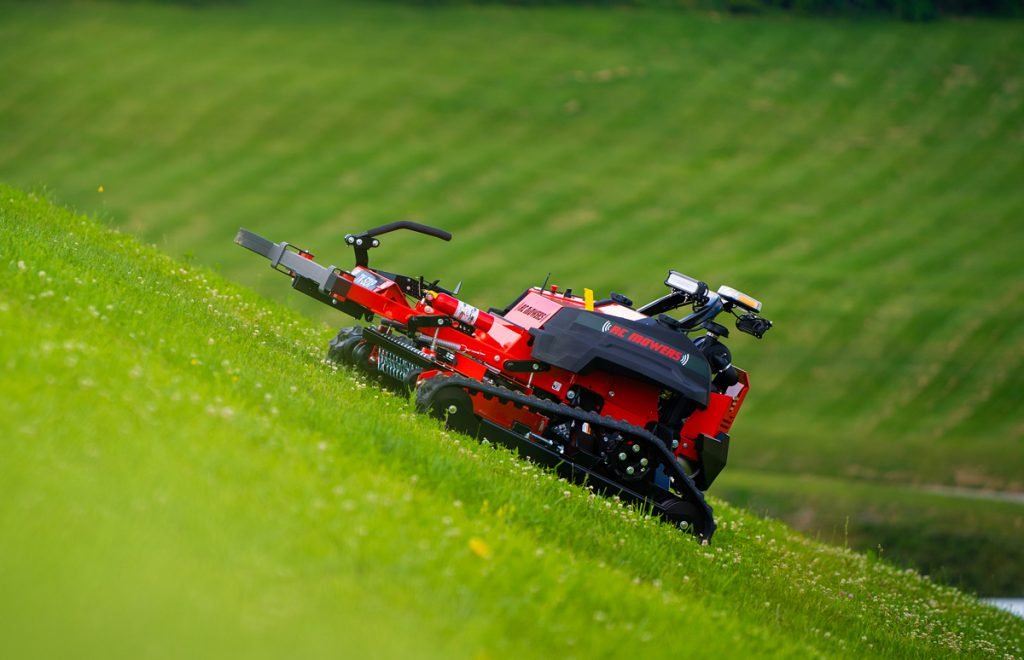In recent years, entrepreneurship has taken various forms, with more individuals opting to start their businesses in areas that align with their skills and interests. One such area is landscaping and lawn care, which continues to grow in demand. For many, this raises the question: Is buying a lawn mower a good career investment?
Whether you’re looking to start a lawn care business or considering upgrading your existing equipment, buying a lawn mower is often one of the most crucial decisions. This article will explore the potential of investing in a lawn mower, its business benefits, key considerations, and long-term career outlook.

1. The Growing Demand for Lawn Care Services
The lawn care industry is flourishing, thanks to increased urbanization, rising property values, and the growing preference for well-maintained outdoor spaces. According to market research, the landscaping services industry is valued at over $100 billion in the U.S. alone and is expected to continue growing in the coming years.
Homeowners and businesses alike are willing to pay for professional lawn care services, which means there is ample opportunity for lawn care professionals to build a steady clientele. A significant factor behind this trend is the increasing lack of time for property owners to handle lawn maintenance themselves, creating a gap for those offering such services.
Advantages of Entering the Lawn Care Industry
- Low Entry Barrier: Starting a lawn care business requires relatively low initial investment compared to other businesses. A lawn mower, some basic tools, and a vehicle for transportation are usually the key essentials.
- Growing Market: As urban areas expand, there is an increasing need for regular lawn care, especially in residential areas with larger properties.
- Scalability: Once you start gaining clients, the business is highly scalable, allowing you to expand into landscaping, garden design, or even snow removal services in the off-season.

2. Types of Lawn Mowers to Consider
Investing in the right type of lawn mower can make or break your lawn care business. There are several types of mowers available, each suited for different purposes and scales of operation. Here’s a breakdown of the main options:
a. Push Mowers
Push mowers are affordable and suitable for smaller lawns. If your clientele consists of homeowners with small to medium-sized yards, a push mower may be an ideal choice.
- Pros: Inexpensive, easy to maintain, and good for tight spaces.
- Cons: Time-consuming and labor-intensive, not ideal for larger lawns.
b. Self-Propelled Mowers
Self-propelled mowers are an upgrade from push mowers, featuring a mechanism that propels the mower forward, making the job easier on larger properties.
- Pros: Easier to use for larger yards, more efficient than push mowers.
- Cons: More expensive and still labor-intensive for very large properties.
c. Riding Lawn Mowers
Riding mowers are perfect for large properties and professional use. They allow you to cover vast areas quickly, making them the go-to choice for professional lawn care businesses.
- Pros: Fast, efficient, and perfect for large lawns.
- Cons: Higher upfront cost, requires more maintenance.
d. Zero-Turn Mowers
Zero-turn mowers are considered the top-of-the-line option for professional lawn care. With superior speed, maneuverability, and precision, these mowers are ideal for commercial landscapers.
- Pros: Extremely efficient, allows precise cuts, reduces time on the job.
- Cons: High cost and requires more expertise to operate.
Choosing the right lawn mower is essential for ensuring the efficiency and profitability of your business. While a push mower may suffice for a small-scale operation, upgrading to a riding or zero-turn mower can significantly boost productivity, enabling you to take on more jobs and maximize your income.
3. Initial Investment Costs
When considering whether buying a lawn mower is a good career investment, you must evaluate the initial costs. Lawn mowers range widely in price, depending on the type and brand. For example:
- Push mowers can cost between $100 and $500.
- Self-propelled mowers typically range from $300 to $900.
- Riding mowers cost between $1,200 and $3,500.
- Zero-turn mowers can go from $3,000 to over $7,000 for commercial-grade models.
In addition to the mower itself, there are other startup costs to consider, including:
- Fuel: Gasoline or battery costs for running the mower.
- Maintenance and Repairs: Regular servicing, blade sharpening, oil changes, etc.
- Transportation: A truck or trailer for moving equipment from job to job.
- Insurance: Liability insurance to cover accidents or damages.
Starting small with a basic mower can keep initial costs low, but as your business grows, upgrading to more powerful equipment can increase your capacity and revenue potential.

4. Earnings Potential in Lawn Care
One of the most important factors to assess when determining whether buying a lawn mower is a good career investment is the potential return on investment (ROI). The lawn care industry offers competitive rates for services, which can lead to substantial earnings over time.
Average Lawn Care Rates
- Small lawn (1,000 sq. ft.): $30 to $50 per visit
- Medium lawn (5,000 sq. ft.): $50 to $75 per visit
- Large lawn (10,000+ sq. ft.): $100 to $200 per visit
If you manage multiple clients and can complete several jobs per day, your income can add up quickly. With proper scheduling, it’s possible to earn anywhere from $200 to $1,000 per day, depending on the scale and frequency of jobs.
Factors That Influence Income
- Location: Urban areas with high property values often have higher service rates.
- Client Type: Residential clients typically pay less per job than commercial clients, but the volume of residential work can make up for this.
- Seasonality: In colder climates, lawn care services may be seasonal, but you can diversify by offering snow removal or landscaping.
5. Long-Term Career Growth in Lawn Care
Beyond the immediate income, purchasing a lawn mower and starting a lawn care business can offer long-term career growth. Once established, many lawn care businesses expand into full-fledged landscaping companies, offering a range of services such as tree trimming, garden design, hardscaping, and irrigation system installation.
Expanding Your Service Offerings
- Landscaping: Designing and building gardens, patios, and other outdoor spaces.
- Seasonal Services: Snow removal, leaf clearing, and holiday light installation.
- Commercial Contracts: Maintaining large properties such as office parks, schools, and apartment complexes.
Building Client Relationships
As with any service industry, building long-term relationships with clients is key to growth. Satisfied customers will provide repeat business and often refer you to others. Offering additional services, competitive pricing, and reliable, high-quality work are essential to creating a sustainable business.

6. Risks and Challenges in the Lawn Care Industry
While investing in a lawn mower and starting a lawn care business can be lucrative, it’s essential to acknowledge the challenges and risks involved.
a. Weather Dependency
The lawn care business is highly dependent on favorable weather conditions. Rain, snow, or extreme heat can cause delays and cancellations, which may impact your income. In regions with long winters, lawn care work may be limited to spring, summer, and early fall.
b. Equipment Maintenance
Maintaining lawn mowers and other equipment can be costly and time-consuming. Frequent use, especially in rough terrain, can lead to wear and tear, requiring regular maintenance. If a mower breaks down during a job, it can cause delays and additional expenses.
c. Physical Demands
Lawn care is a physically demanding job, requiring long hours of standing, walking, and handling equipment. If you’re not prepared for the physical toll, it can lead to burnout or injury over time. Additionally, as your business grows, hiring and managing employees can add complexity to operations.
7. Is Buying a Lawn Mower the Right Investment for You?
So, is buying a lawn mower a good career investment? The answer largely depends on your personal goals, skills, and market conditions. If you enjoy working outdoors, have an entrepreneurial spirit, and are willing to put in the hard work required, investing in a lawn mower can be the first step toward building a successful lawn care business.
The lawn care industry offers a low barrier to entry, competitive earnings, and long-term growth potential. However, like any business, it comes with challenges, including the physical demands of the job and the costs of maintaining equipment.
Ultimately, if you’re prepared to manage these challenges and commit to growing your business, purchasing a lawn mower can be a sound career investment. By carefully selecting the right equipment, building a loyal client base, and continuously expanding your service offerings, you can turn your lawn care business into a thriving and profitable venture.

Conclusion
Investing in a lawn mower is not just about cutting grass—it’s about entering a market with growing demand, low startup costs, and the potential for substantial long-term growth. For individuals who enjoy physical work, love the outdoors, and have a business mindset, starting a lawn care business can be a highly rewarding career path.
By choosing the right equipment and gradually expanding your services, the initial investment in a lawn mower could lead to a steady and profitable career in the landscaping industry. So, if you’re thinking about making this leap, the answer is clear: buying a lawn mower can indeed be a good career investment with the right approach and planning.





